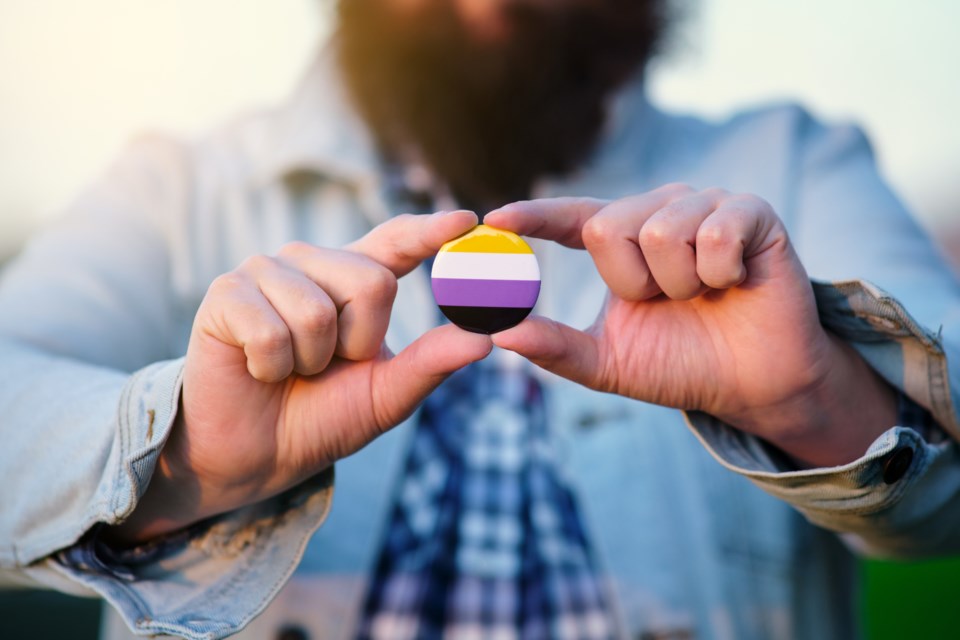When Asia Kate Dillon of the Showtime show "Billions" first wrote an open letter to the Television Academy in 2017 challenging the Emmy Awards' binary gender categories, previously unasked questions about the place of nonbinary and genderqueer actors in an industry set up primarily for men and women came flooding in.
Dillon, a nonbinary actor who plays a nonbinary character in "Billions"—a historic first in nonbinary representation in media—was told by the TV Academy that they could submit in either the best actor or actress category. Ultimately, they opted for 'actor,' citing the word's gender-neutral usage.
But being forced to choose between the two categories didn't sit well with Dillon, who, in the following years, pushed back more on the industry's binary designations.
In a subsequent 2020 letter to the awards committee of the Screen Actors Guild—which uses the terms "male actor" and "female actor" for award category names—they wrote, "Separating people based on their assigned sex, and/or their gender identity, is not only irrelevant when it comes to how an acting performance should be judged, it is also a form of discrimination."
They called for the awards to merge their actor and actress categories into a single, nongendered performance award.
Conversations about combining gendered performance awards have become more and more prevalent in recent years, as increasing numbers of nonbinary and genderqueer performers speak out against the discriminatory nature of gendered categories.
Emma Corrin, who played Princess Diana in the hit Netflix series "The Crown" and starred in films such as "Lady Chatterley's Lover" and "My Policeman" in 2022, told the BBC, "It's difficult for me at the moment trying to justify in my head being nonbinary and being nominated in female categories."
The nonbinary actor Justin David Sullivan went so far as to take themself out of consideration for a Tony Award nomination for their performance in the Broadway musical "& Juliet," writing in a public statement, "I could not in good faith move forward with denying any part of my identity to conform to a system and structure that does not hold space for people like me."
Gendered acting awards have been a hotly debated topic over the past decades, albeit for various reasons. While some see separate gendered categories as a fail-safe way to ensure women performers get formal recognition, protecting them from being pushed out by men, the "best actress" categories have been maligned by some women, who find the terminology unnecessary and outdated.
Cate Blanchett, who called the term "pejorative," prefers to use the gender-neutral term "actor" to describe herself. The AP Stylebook, the leading linguistic guide for American media, recommends the usage of "actor" for all performers regardless of gender, except when referring to awards with gendered categories such as the Oscars, Emmys, and Tonys.
At the same time, many advocates for gender parity in Hollywood have voiced concerns that switching to nongendered categories could have an unintended consequence: cisgender male nominees dominating the combined category.
The debate over the equitability of gendered categories for both women and genderqueer performers gets at deeper, more complicated questions: What will it take to mend the industry's century-old systemic gender and racial inequities? Are gender-segregated awards the root of the problem or merely a symptom?
Stacker delved into the debate around nongendered entertainment awards and Hollywood's systemic gender and racial inequities. Keep reading to learn about the varying perspectives at the centre of this debate.
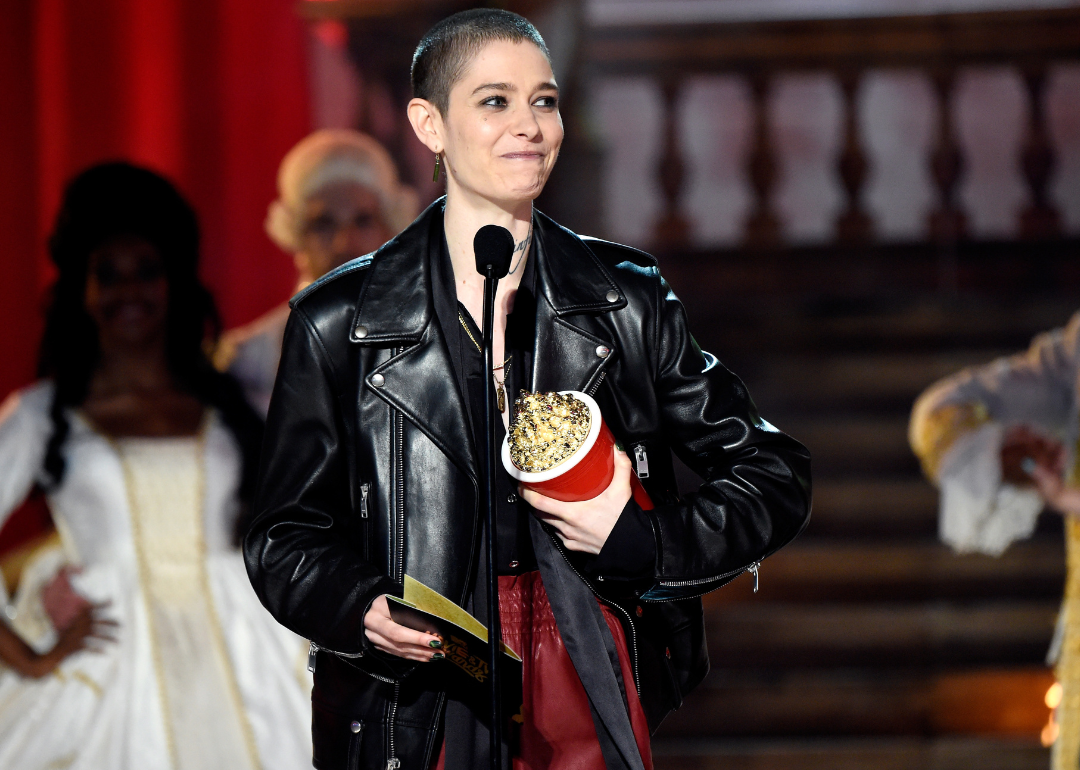
Smaller awards presenters have started making the switch to nongendered awards
MTV kicked off the succession of smaller film and television awards presenters who have shifted to nongendered acting awards.
Asia Kate Dillon presented Emma Watson with the first gender-neutral best actor accolade at MTV's Movie and TV Awards in 2017 for her role in "Beauty and the Beast." Other awards presenters—including the Film Independent Spirit Awards, the Gotham Awards, the Canadian Screen Awards, the British Independent Film Awards, and the Dorian Awards—have followed suit over the past several years.
For the Dorian Awards—which are presented by GALECA, the Society of LGBTQ Entertainment Critics—the move to transition to nongendered awards categories in 2021 was not unprecedented. In the association's early days, awards were gender-neutral. It wasn't until 2013 that separate actor and actress categories were added in order to honour more performers, GALECA's executive director John Griffiths told Stacker in an email.
By 2021, Asia Kate Dillon's open letters on gendered awards categories had begun to bring the issue into the mainstream. Writer and GALECA member S.E. Fleenor saw a misalignment of values between GALECA's queer-inclusive mission and the Dorian Awards' gendered categories.
Fleenor decided to take action, bringing the idea of switching back to nongendered awards to the members' annual meeting. In preparation, they collected information from other smaller awards organizations that had made the switch, asking questions about what the change meant to the organization, why it mattered, and what problems they encountered.
Finally, Fleenor presented their findings to GALECA's membership. While some members expressed concerns that nominations might be dominated by men, a look at the Dorian Awards' record of nominations and wins showed that women were more often nominees for and winners of awards.
From there, things moved quickly. Members voted to approve the change to the Dorian Awards categories at the following meeting. "The timeline was really short," Fleenor told Stacker. "I think a lot of institutions struggle to move quickly, and I thought GALECA I did a good job of making sure we really brought everyone with us, but also moving quick, striking while the iron was hot."
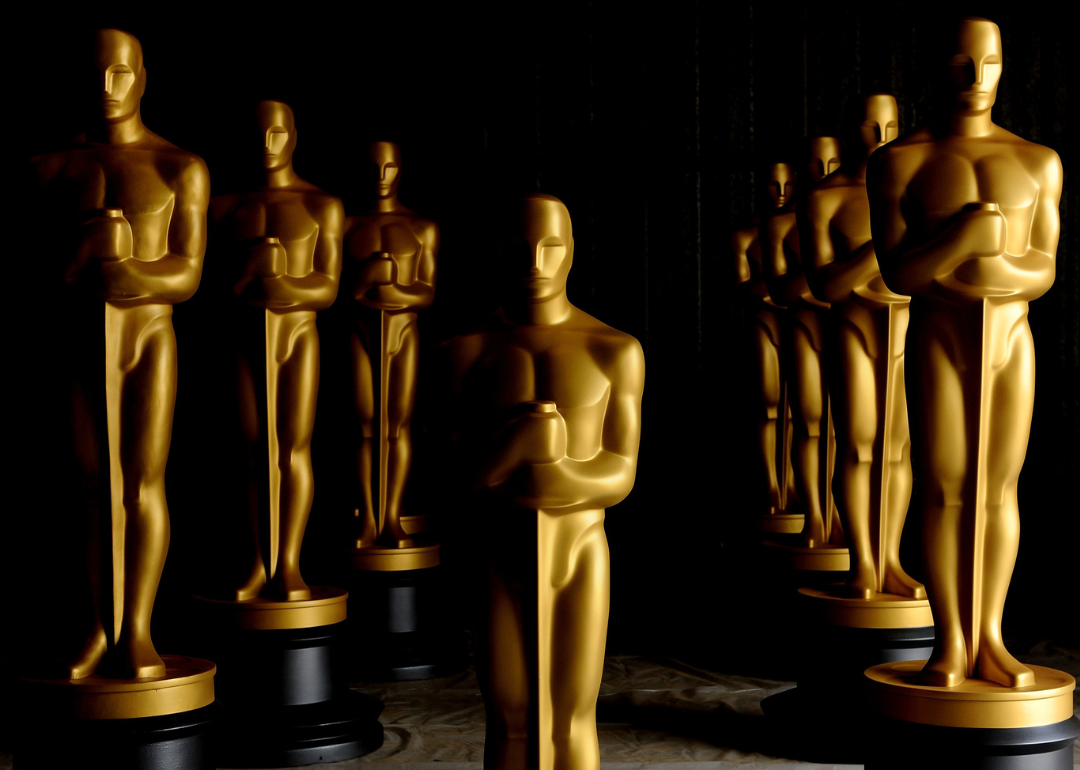
Major awards presenters like the Academy might not be ready for nongendered awards
While the decision to move towards nongendered awards might be somewhat straightforward for smaller awards presenters with more diverse—and progressive—voting bodies, larger, more entrenched institutions like the Academy of Motion Pictures Arts and Sciences are slower to act.
"Fighting tradition in order to evolve is very, very difficult for these storied organizations," David Canfield, a staff writer for Vanity Fair covering awards, told Stacker. The Academy has over 9,000 voting members but is an invitation-only group, cultivating a notoriously exclusive image. Sustained pressure, protest, and advocacy from performers and members of the industry will likely be necessary before institutions like the Oscars and the Emmys are forced to act. "It's an uphill climb," he said.
Erik Anderson, the editor-in-chief of the website AwardsWatch and a fellow member of GALECA, agrees. "I think most of the time, whether it's media or politics or whatever, there's very little proactive behaviour and much more reactive behaviour," Anderson told Stacker.
"No matter what type of progress we're talking about, it is always going to be the underdogs and the second-tier and third-tier groups that do these initial pushes and changes. It takes a lot for something at a higher top level to make those changes. I don't know if we're going to see that happen that soon," he said.
Even if institutions like the Oscars or the Emmys were to adopt nongendered acting categories, many have questioned whether the voting bodies are ready to vote for people who aren't white or male. "I think small organizations can hold themselves accountable," Fleenor said. "I think the Oscars could [too], but it would take a revolution that I don't know [if] that voting body is going to be on board for."
For Tema Staig, the executive director of the Hollywood gender parity advocacy group Women in Media, big awards shows combining their best actor and actress categories at this point in time would be "a massive mistake."
"They will just edge women out. The men will get all the awards," Staig told Stacker.
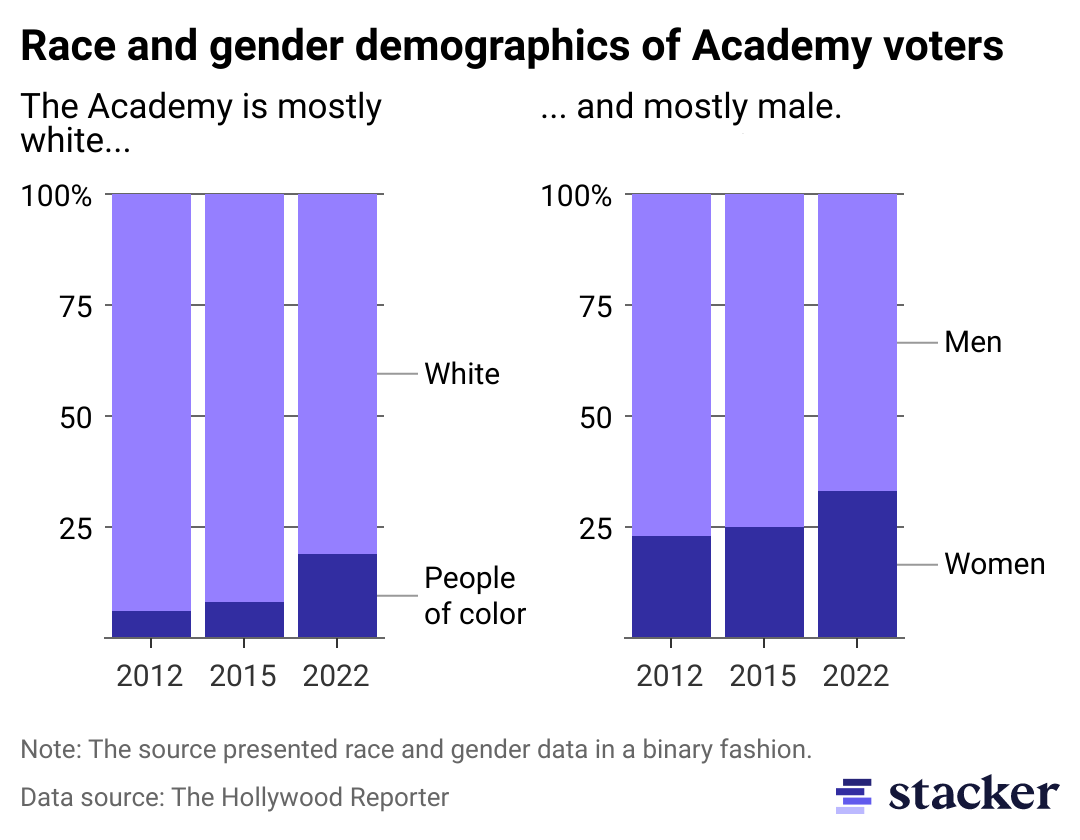
The Academy of Motion Picture Arts and Sciences remains largely homogeneous
The Academy and other prominent awards bodies have made headlines over the last decade for a stunning lack of diversity among their voting members. In 2015, the Academy was 75% male and 92% white, according to data gathered by the Hollywood Reporter.
That same year, no actors of color were nominated for an Oscar (nor were any the following year), spurring the #OscarsSoWhite movement.
The connection between a predominantly white and male voting body and an overwhelmingly white and male group of Oscar nominees and winners is not lost on critics, whose calls for greater diversity within the Academy spurred the institution to roll out equity and inclusion initiatives for the first time in 2016.
In spite of these initiatives, the Academy remained largely white and male in 2022. And the problem goes deeper than the body's demographic makeup alone. According to Staig, some members of the Academy do not watch all of the films, skipping those made by or starring unfamiliar names—often women, people of color, and international filmmakers. Instead, many vote for already-successful white men.
"They're … voting for people who they know, or who are name brands to them, or people who they want to work with," Staig said.
While there isn't a comprehensive understanding of the scale of this issue, a 2015 poll of Academy voters by the Hollywood Reporter found that almost 6% of voters did not even watch all of the Best Picture nominees.
"I think the Academy needs to put pressure on their members to watch all the films," Staig said. "If you don't watch a certain amount of films, then you need to get out of the way and let people who actually take this thing seriously do it. People who actually love films and want to vote equitably."
To Fleenor, the issue of inclusivity for nonbinary and genderqueer actors and women, particularly within institutions like the Oscars, goes much deeper than changing the names of categories.
"At the end of the day, if your voting body isn't voting for women, that's a problem with your structure. That's not a problem with your performance categories. And it's not a problem with nonbinary actors. What happens when people ask for change is we end up pitting the people who most need support within the system against each other," they said.
Without making systemic changes to the voting body, member recruitment, and making space for more diverse perspectives in conjunction with shifting to nongendered categories, it's likely that those who aren't male and white will bear the brunt of being shut out of Oscars recognition.
Black women performers and filmmakers are already staggeringly underrepresented as Oscar nominees and winners. Just this year, critics have remarked on the glaring omission of several critically acclaimed films—including "The Woman King," "Till," and "Saint Omer," which were made by and starred Black women—from any Oscars nominations.
"It almost doesn't matter what label you put on the performance category," Fleenor added. "What matters is, is your institution going to be trans-inclusive, is your institution going to be working hard to fight white supremacy, even when white supremacy might be built into the very structure of your organization?"
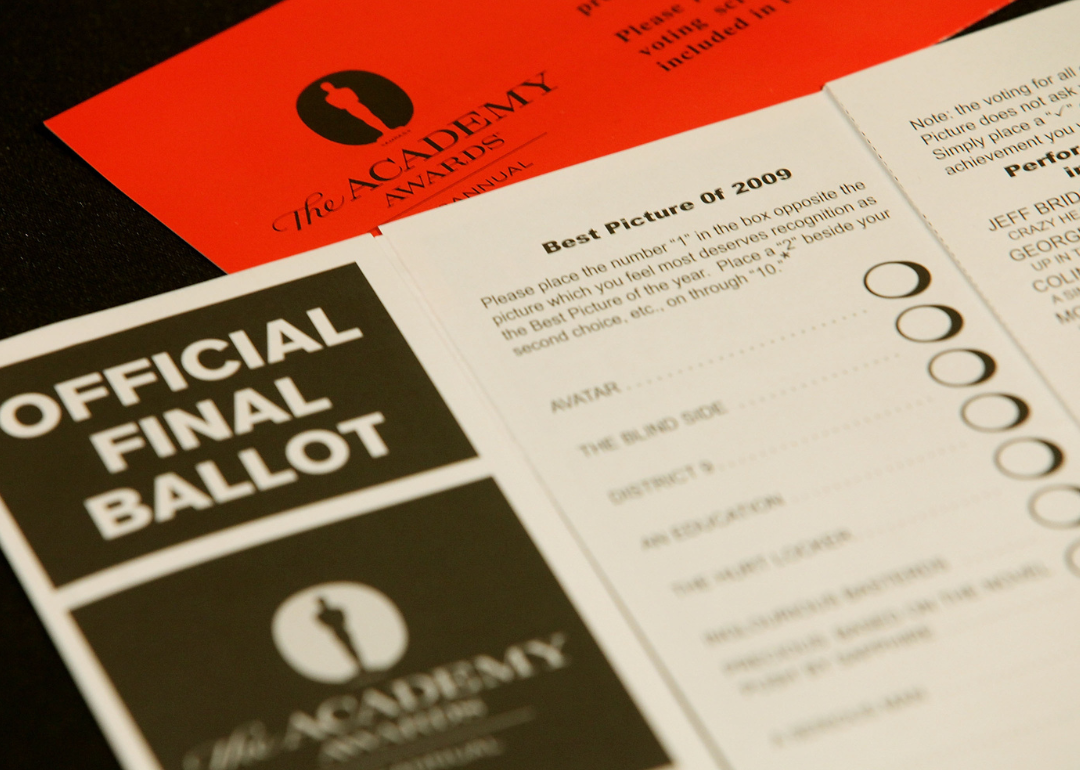
For nongendered awards to achieve their inclusive aims, the system would need a major overhaul
Debate around what more gender-inclusive awards could look like for heavy hitters like the Oscars, Golden Globes, and Emmys has revealed differences of opinion about the most equitable path forward. Some proponents have argued for combining actor and actress categories but adding more nominee slots—and perhaps more winners—so that the number of awardees doesn't decrease by half.
Others, like Staig, have alternatively proposed adding a third, nonbinary gender category and even instituting gendered categories across all awards—not just acting—in an effort to recognize more women directors, producers, editors, cinematographers, and other women working behind the camera.
"Until those voting bodies are capable of watching all the movies and recognizing all genders and their work, I think we need to keep things gendered and expand how many genders get nominated, so they actually watch the work. My hope is that that would be a short-term fix," Staig said.
Many genderqueer individuals, however, reject the idea that being nonbinary means fitting into a neat, "third gender" category. Such a category could introduce harmful beliefs about gender as a "trinary," rather than a spectrum.
"One of the purposes of having nongendered awards is to be able to allow nonbinary people to submit and be nominated and not categorized," Anderson told Stacker.
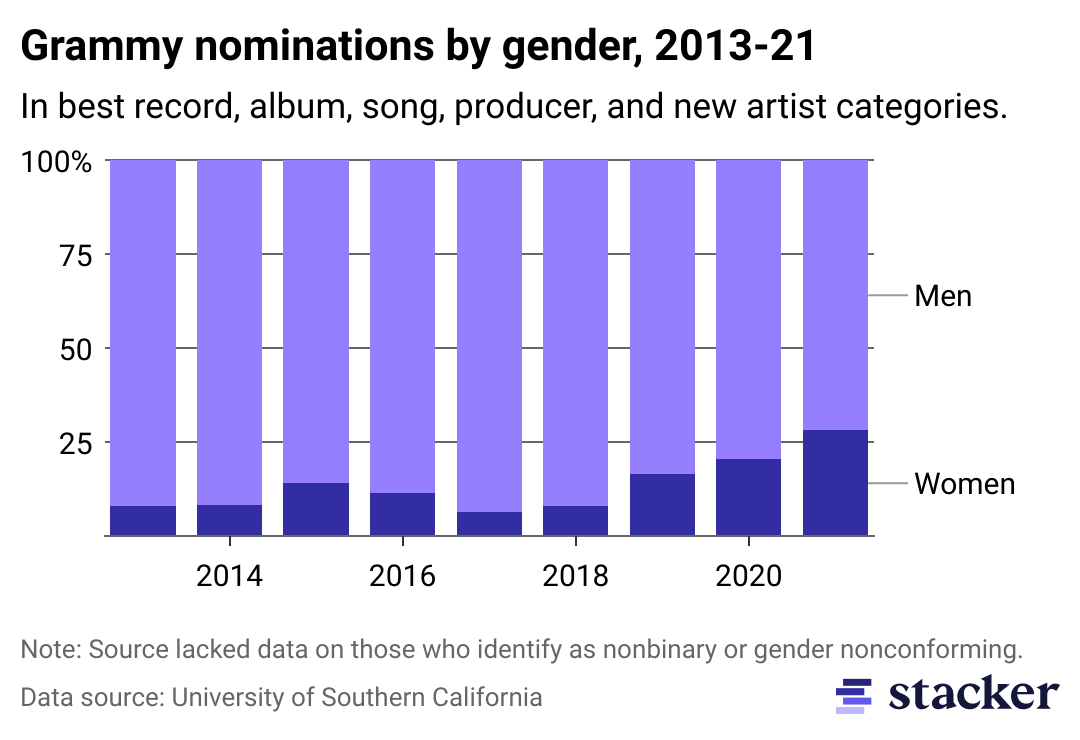
Women Grammy nominees still lag behind men
As more conversations about nongendered awards enter the mainstream, many have looked to examples outside the film and television industries for clues about how the switch could play out.
The Grammys, which overhauled their gendered vocal categories in R&B, pop, country, and rock starting in 2012, is one of the largest awards presenters to go gender-neutral—but the results have been mixed.
Women made up a small percentage of all Grammy nominees across major categories between 2013 and 2020, according to data from the USC Annenberg's Inclusion Initiative. This is hardly surprising, considering only 21% of the Grammy nominees in major gender-neutral categories between 1959 and 2018 were women, according to a separate analysis by Glamour. Just 23% of those awards were won by women.
Some saw the years following the Grammys' switch to nongendered categories as a confirmation of fears that men would dominate those categories, as many categories continued to be mostly or entirely made up of male artists.
In 2019, then-president of the Grammys Neil Portnow stepped down after commenting that women should "step up" if they want to find success in the industry. Others noted that the Grammys' objective in scrapping gendered categories was not to promote inclusivity but rather to increase competition by decreasing the number of categories—and winners.
Other major music industry awards have similarly made the switch to gender-neutral categories and have faced scrutiny for their lack of women nominees. The Brit Awards merged their male and female artist of the year awards into one in 2023, only to end up with an all-male roster of nominees.
The results haven't been all negative, however. Time—as well as criticism from Grammy fans and members of the industry—has led to a significant uptick of women nominees over the past several years, though they are far from achieving parity with men.
In many ways, the Grammys' transition to nongendered categories serves as an example of what could happen with film and television awards if gendered performance categories are combined without considering existing structural inequities.
"I hope that any large organization that would decide to undertake exploring whether or not this change is right for them wouldn't do it as a little one-off thing," Fleenor said. "You have to make sure that when you're diversifying a group, those people have a voice."
Without also diversifying who can vote, which stories are being told (and by whom), and even the types of films being made within the industry, nongendered categories could backfire—even on the same people they were ostensibly created for.
